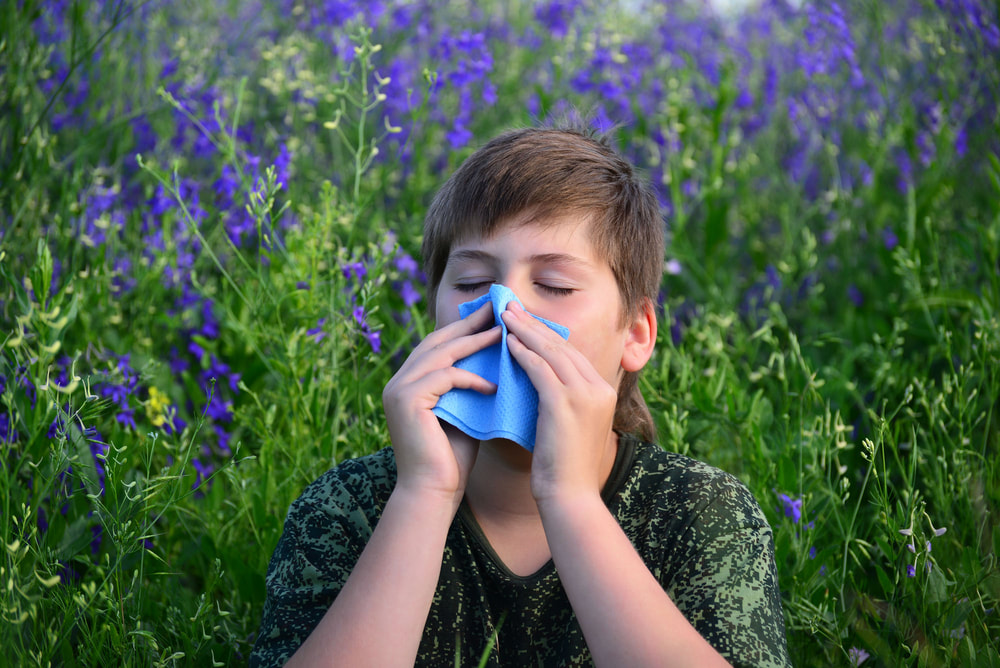But there are ways to treat and prevent symptoms. Keep reading below to learn more about eye allergies, including how to treat and prevent symptoms. What causes eye allergies?Allergies develop when the body reacts to a substance as if it was dangerous even though it is not. The substance, called an allergen, could be anything, including food, dust, or mold. When the body works to fight the allergen, the immune system releases antibodies that bind to mast cells. Those cells release a chemical called histamine. Histamine leads to typical allergy symptoms. In many cases, allergy symptoms affect the eyes. For some people, their only allergy symptom involves the eyes. What are some common allergens?There are many types of allergens, but some of the more common ones include:
Some people are also allergic to more than one thing. Usually, after exposure to an allergen, symptoms start immediately. Eye allergy symptoms include the following:
Do allergies mainly occur in the spring?Although springtime is often the start of allergy season, eye allergies can occur all year round. For example, certain allergens may be in the environment during a specific season. Also, some people are allergic to common indoor allergens, such as dust or mold. How are eye allergies treated?There are several ways to treat eye allergies, such as: Try eye drops: Different eye drops are on the market to help ease symptoms. Drops are available over the counter, as well as prescription eye drops. Talk to your eye doctor about the best eye drops for your allergy symptoms. Use artificial tears: Using artificial tears may reduce burning and irritation from eye allergies. Artificial tears also help remove some of the allergens from your eyes. Take oral allergy medication: Allergy medication often contains an antihistamine. This prevents the release of histamine and stops common eye allergy symptoms. It is best to take an antihistamine even before exposure to a known allergen. Consider allergy shots: If eye allergies are hard to prevent or severe, your doctor may recommend allergy shots. Allergy shots help your body build up a tolerance to the allergen through a series of shots that contain a small amount of the allergen. Over time, your body stops reacting to the allergen. Can allergy medicine affect the eyes?Certain types of allergy medication may have an impact on the eyes. For example, some allergy medications may make the eyes dry. In other cases, prolonged use of allergy medication is linked to an increased risk of an eye condition. For instance, according to the Cleveland Clinic, antihistamines may increase your risk of developing glaucoma. Can you prevent eye allergies?You may not be able to prevent exposure to all allergens that can cause eye allergy symptoms, but there are things you can do that may help prevent symptoms. For example, if you are allergic to pollen, try to wash your face and rinse your eyes as soon as you come in from being outside.
Also, wearing sunglasses may reduce exposure to allergens. It is also helpful to avoid rubbing your eyes, which can spread the allergen around and may increase symptoms. We hope the information above on eye allergies helps you manage symptoms. If you would like to ask whether an appointment with one of our eye doctors would be appropriate at this time, call our office at 508-746-8600. Comments are closed.
|
EYE HEALTH BLOGCategories
All
Archives
July 2024
|
|
Kadrmas Eye Care New England
55 Commerce Way, Plymouth, MA 02360
14 Tobey Road, Wareham, MA 02571 133 Falmouth Road (Rt 28), Mashpee, MA 02649 |
Phone Number:
1-508-746-8600 Hours: Monday through Friday — 8 AM – 4:30 PM |


 RSS Feed
RSS Feed
